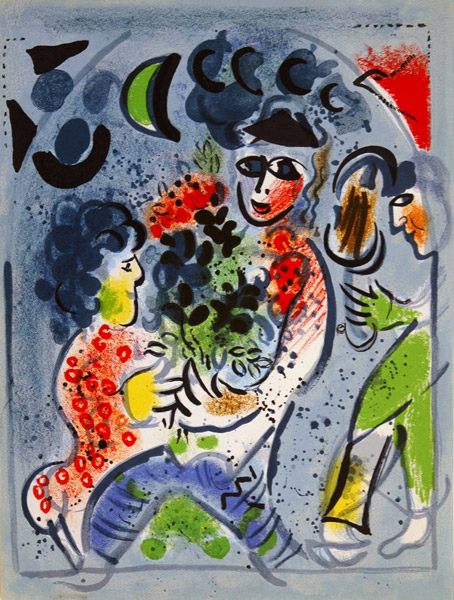Become a Believer
Howard Schaap
 I first came across the idea of the “holy fool” in Isaac Bashevis Singer’s short story, “Gimpel the Fool.” The story was in a literature textbook I was using, and I didn’t have anyone to tell me what it meant. That was all the better. Even though I count it as a real flaw in my literary education that no one brought up the archetype of the holy fool, a story like Singer’s is best stumbled on alone, where the story’s very oddity throws you into vertigo.
I first came across the idea of the “holy fool” in Isaac Bashevis Singer’s short story, “Gimpel the Fool.” The story was in a literature textbook I was using, and I didn’t have anyone to tell me what it meant. That was all the better. Even though I count it as a real flaw in my literary education that no one brought up the archetype of the holy fool, a story like Singer’s is best stumbled on alone, where the story’s very oddity throws you into vertigo.
In the story, Gimpel the baker is the butt of everyone’s jokes. The biggest joke? The townspeople marry him off Hosea-like to the town prostitute, who bears him six illegitimate children. Repeatedly, Gimpel takes action to end the marriage, but instead comes to conclusions like, “What’s the good of not believing? Today it’s your wife you don’t believe; tomorrow it’s God himself you won’t take stock in.”
For a long time, I’ve struggled with the designation of Christians as “believers” for two reasons: on the one hand because it’s too wide, designating naivety and gullibility for products from Buddy Christ bobbleheads to the Precious Moments Chapel; on the other hand, because it’s too narrow, as Christians seem to be willing to believe in primarily one direction, primarily allegorical—as in, Gandalf is Jesus and the dwarves are the twelve disciples (Crap, there’s thirteen; well, Tolkien’s a word guy, must’ve miscounted).
Then, in graduate school, I came upon, well, unbelievers.
One of them, in 19th Century Nature Writing, called into question the basic ethic of the course, that we should value life because life was itself a good. “How do I know that ‘life’ is a ‘good’?” she asked. “How do I know that it’s not better that life go extinct?”
Now that’s radical, respectable doubt. She’s right: “We should value life because we should value life” is not believing; it’s tail-chasing.
In another class, I read Life of Pi with a smattering of students who were studying to be experts of story. Famously, that book spends two-hundred-plus pages recounting the trans-pacific trip of a boy on a lifeboat with a hyena, an orangutan, and a Bengal tiger named Richard Parker. Then, it performs a bait-and-switch. Investigators arrive on the scene who doubt the story. The survivor, Pi, then tells them a different story than the one we’ve been reading, a naturalistic tale in which all the characters are humans who kill each other in order to survive. The dilemma is, which story do you believe?
I take pride in the fact that I was the only one who took the first story. After all, I’m a believer. The rest? Unbelievers.
As per Singer’s story, “believing” is dangerous business: other people might quite literally shit on you, continually heap insults on you, stick you with their illegitimate children. But if you clump together with other believers under one roof and call it a church, what better place for illegitimate children?
I remember one critic on Singer’s story suggested that the Gimpels of the world get cooked in Nazi ovens. But isn’t that exactly the problem—that we blame the victim, believers, at the expense of the cynics? “Don’t believe,” the lesson goes, “or the Nazi’s will get you—we’re helpless to prevent them from rising to power and killing millions.”
Here’s the dirty little secret of a rationalist society: we revile the believer who sends all his money to the TV evangelists more than the TV evangelist; we revile Trump or Hillary supporters more than Trump or Hillary him- or herself.
I wonder if radical believing could blow up our polarized society. What happens if you believe what you see on Fox and CNN? What happens if you believe climate change and believe its doubters? What would happen if we believed everything that was said by both Donald Trump and Hillary Clinton—and the green party—and the legalize marijuana party?
Maybe the holy fool explains the election season in America. Maybe that’s the only way to explain it. We turn into believers every four years.
But only partial believers. We should throw open the floodgates of belief, believe in every and all directions.
The Holy Fool archetype has roots in scripture—in Isaiah, Hosea, Ezekiel, who actually refused God’s command to cook his food over burning human dung and settled for animal scat instead.
Why not give all away all your money, marry a prostitute, support her children with your diligent work at the bakery or prophesying at the town gate?
One final sign that I’m right on this, that I’m going to become an omnivorous believer: as I wrote this—no lie—I received a “random” email form a listserv I’m a part of.
It was from Richard Parker.